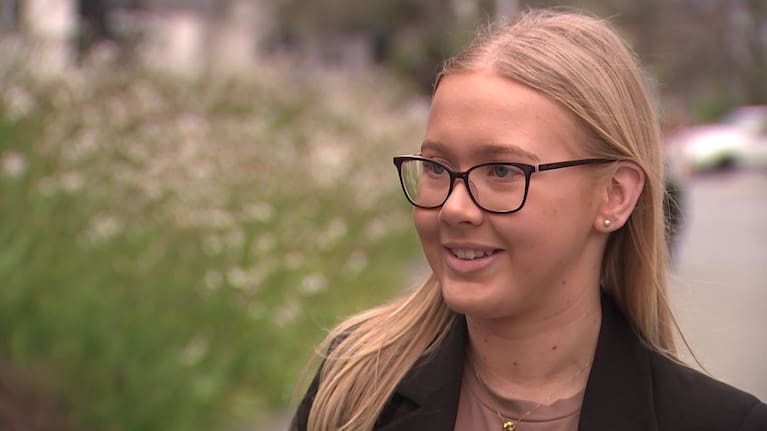Survivors of meningitis are calling for more funding from the next government to eliminate the life-threatening disease.
At 21 years old, Kaela Metz got what she thought was stomach flu, which lasted weeks, followed by "excruciating" hip pain.
She was taken to Christchurch Hospital's emergency department, where she developed a rash and lost her hearing and eyesight. Metz was put in a coma for three weeks.
"Terrifying and terrifying for my family as well, absolutely.
"When I was in the coma, they were giving me hours to live, then days to live, and there was still the chance of permanent brain damage and loss of limbs. It's a very serious illness," Metz said.
It comes as the World Health Organization is aiming to defeat the life-threatening disease by 2030. (Source: 1News)
She wasn't vaccinated and didn't know whether she was eligible to get a publicly funded jab.
This year alone, there have been 44 people who've had the disease, and one person has died.
Phoebe O'Regan said meningitis could've taken her life when she needed emergency surgery to drain fluid from her brain four years ago.
"I was vaccinated at four years old, but no one knows that it only lasts five years, so I have no idea where I contracted it from.
"I knew it was serious when the doctor told me that I was getting rushed away and that I might die. A little tear escaped from my eye," O'Regan said.

In New Zealand, vaccinations are free for children up to 12 months old, those aged between 13 and 25 who are moving into close living situations, and people with certain medical conditions.
Meningitis Foundation chairman Gerard Rushton said he would like public funding for vaccinations to be extended.
"Any loss of life is too expensive. With meningitis, 40% of people will have a lifelong disability, and we've calculated that it only needs one or two life-long disabilities to actually pay for implementing this vaccination programme throughout New Zealand.
"This disease can actually be eliminated with vaccination, and that's just so important because ultimately, this disease can kill within 24 hours, so treatment often is too late," Rushton said.

The drug-buying agency Pharmac said it has five applications to widen access to the various meningococcal vaccines but said that relies on having the budget.
Public health specialist Dr Felicity Williamson said evidence shows that those who are most at risk "do have eligibility for the funded vaccine".
She said vaccinations give New Zealand a "good chance of helping to eradicate this" as well as a whole range of prevention efforts for those at highest risk.
When her kidneys failed because of meningitis, Metz's mother donated one of hers, which she was very grateful for.

"I'd always been very healthy, barely even got a cold, never been to hospital."
She told 1News that now her life has changed, and she struggles daily with fatigue, brain fog, confusion, headaches, and nausea.
Metz hopes that by telling her story, others consider getting the protection she was lacking.






















SHARE ME